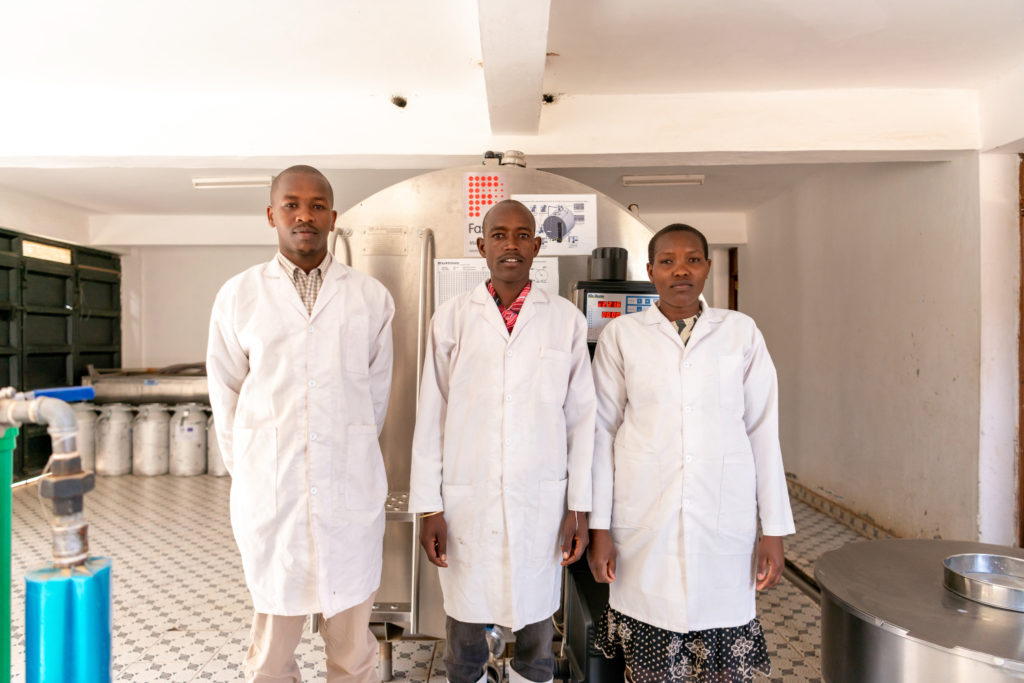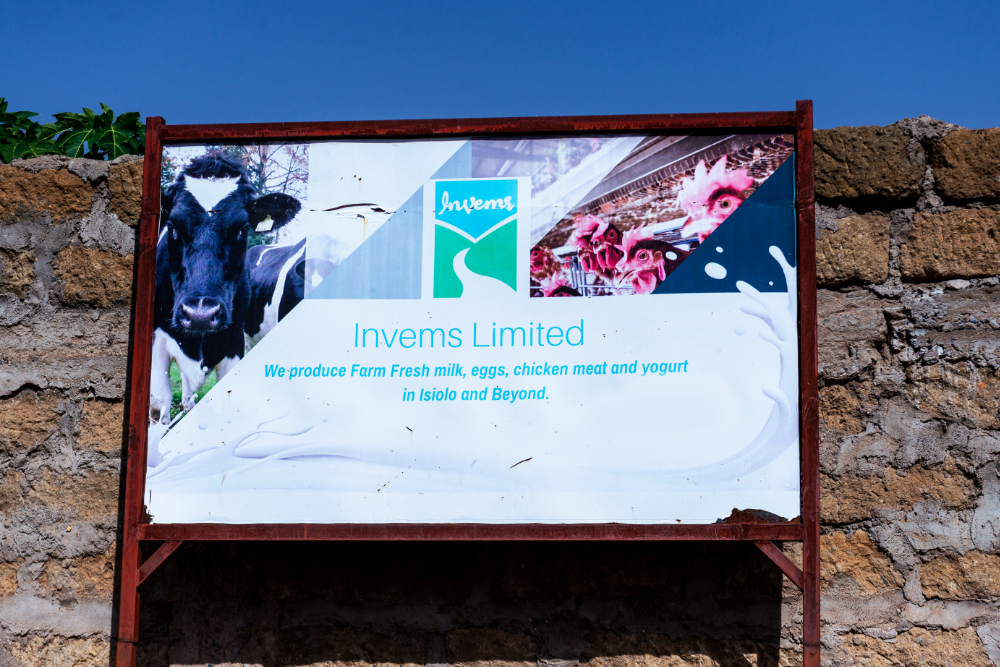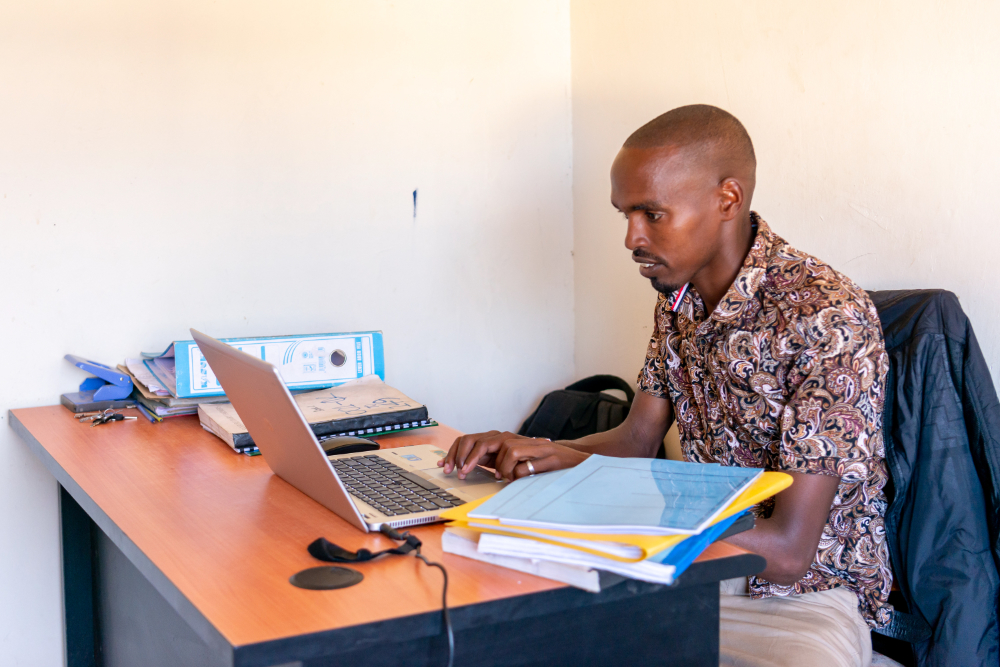The Lundin Foundation recently concluded the Northern Corridor Growth Initiative (NCGI) in Kenya, a small business accelerator program funded by MEDA, that delivered targeted, intensive technical assistance and access to financing.
The program, which initially began as the Turkana Catalyst Initiative in 2018, was tailored to enable the growth of high-potential businesses operating within the Northern Corridor to develop the knowledge and skills needed to progress from informal operations to formal businesses.
Developing and delivering industry-relevant programs to create a confident and skilled workforce is essential to long-term community prosperity. At its conclusion, the program succeeded in supporting Small and Medium Enterprises (SMEs) in the counties of Isiolo, Samburu, Lamu, and Tana River and Kilifi to become established businesses.
PROGRAM IMPACT
The cumulative impact of both the TCI and NGCI programs led to more than 60 businesses receiving support through various initiatives. These businesses generated $9.8MUSD in revenue, from which $1.7MUSD contributed to wages, and provided job opportunities to more than 230 local employees.
PROGRAM HISTORY
The Lundin Foundation works collaboratively with partners and communities to develop strategic programming and investments that empower lasting, sustainable impact at the local level. Entrepreneurs and small businesses are the heartbeat of the communities where we operate. We leverage the power of the market and, together with our stakeholders, design market-based solutions to increase the economic and social benefits to communities.
The NGCI program was launched in collaboration with local partners to offer small businesses intensive and practical training and help entrepreneurs develop skills that could be applied to management concepts and address unique challenges within their community.


ABOUT THE PROGRAM
The NCGI training program was centred around a “survive to thrive” approach, where businesses were exposed to different practices that would help them become resilient to changing economic variables. With access to finance being a key challenge for most companies, the Lundin Foundation, through NCGI, supported SMEs through targeted training and technical support aimed at:
- Improving financial planning
- Developing business plans and pitch decks
- Facilitating introductions to commercial banks and investors for access to third-party financing
- Opening bank accounts with commercial banks
- Supporting financial forecasting and building financial models
The training phase included training, group activities, case studies and field exercises for practical application.
COMMUNITY FEEDBACK
At the program’s conclusion, each business was asked to provide feedback on their experiences and share what specific learnings enabled them to make strategic improvements to their business. The following two profiles from Sacco Cooperative and Invems Agencies Limited describe these impacts in their own words.
Sacco Cooperative: Efficiency in operations
Dairy farmers living in Samburu county needed assistance reaching new markets. In response, the Sacco cooperative was founded to create a dairy value-chain business for the area. However, the impact of the pandemic brought many challenges to the company, which sought ways to improve production efficiency and avoid wastage. In addition, Sacco sought opportunities to expand into new markets and support growth through strategic planning and excellent record keeping.
After the training, Sacco shared that developing skills in creating investment plans, cash flow monitoring tools, and budget preparation was most meaningful for their growth.
“As a result of the training, every little detail of a transaction is noted down, cash books, payment vouchers, LPO, service order etc. In addition, we are now observing workflow efficiency, and there is more understanding between employees and management as we recognize their contribution to the business growth.”
The manager, Mr. Edwin Chesire, also acknowledged that employees are now actively contributing to the company by helping to ensure there is no mismatch of expectations through mentoring and alignment for the business’s long-term vision. Additionally, the company can now monitor business performance through the accounting services offered by the program. They are currently using these tools to seek additional funding for business expansion.

“As a result of the training, every little detail of a transaction is noted down, cash books, payment vouchers, LPO, service order etc.”
Invems Agencies Limited: Improved recordkeeping and use of customer feedback
Invems Agencies Limited is a limited liability company in the agri-processing space. They process milk into yogurt and raise chickens that supply the community’s eggs. Before joining the NCGI program, Invems faced several recordkeeping challenges and lacked a reliable mechanism to monitor costs. Customer consultation and using feedback to improve operations were also lacking.
After the training, the company adopted tools and reported that changes in company practices have led to improved employee morale and positively impacted the business efficiency and growth. In addition, they are more conscious of costs and apply the negotiation tactics learnt in the program to ensure they get input costs at fair prices.
“We now ensure every little transaction made or change made is recorded daily. With the help of the records, it is now easy to calculate the profit.”
“On employees, we are now passing the lessons learnt and are training them too, to ensure we have knowledgeable employees. When I am out of town, I am at peace knowing all is well”
The company has also improved its delivery channels and is better equipped to respond to customer demands. In addition, they indicate having a clear understanding of financial products.
“We listen to customers, deliver on order using motorbikes, we respond promptly, we make sure to get feedback from clients so as to improve.”
“Now there’s clear communication from top management to the employees and vice versa. We take into account feedback gotten from the employees and communication within the company is better.”




